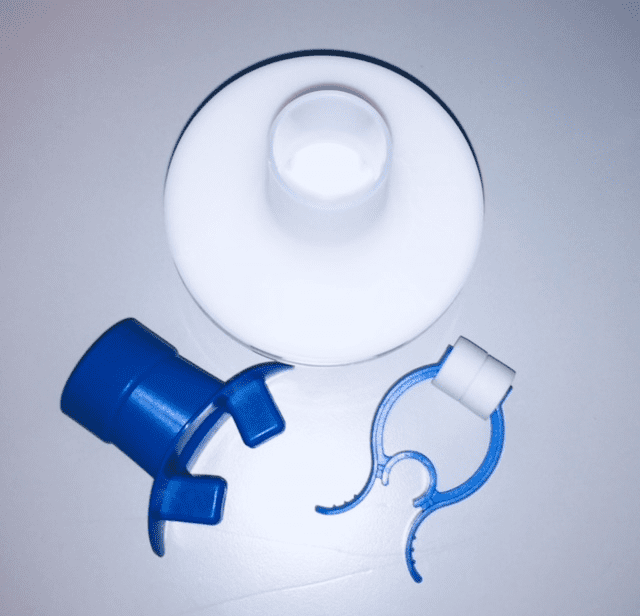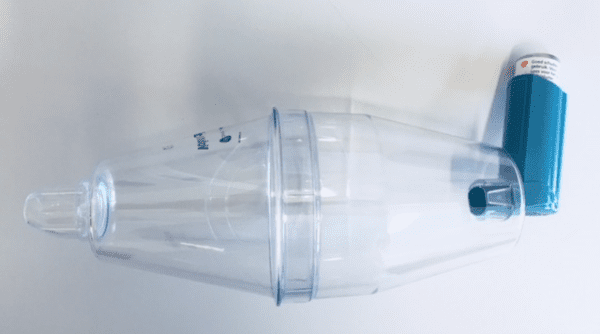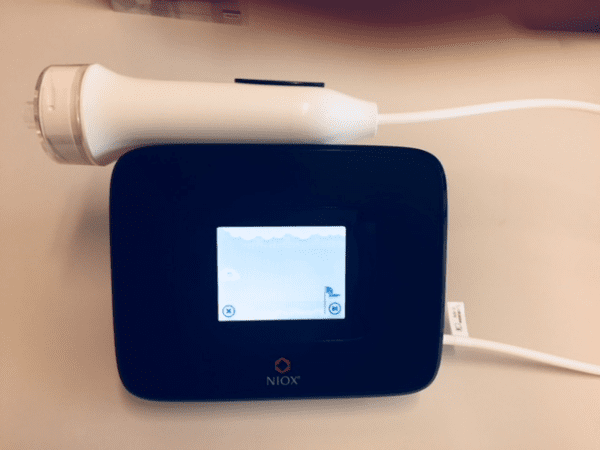Pulmonary function testing in children
Your child will soon visit the hospital to undergo a pulmonary function test. The paediatrician has probably already told you a thing or two about the test that is going to be given to your child. On this webpage, you can read all about it at your leisure. If you still have questions after reading this webpage, do not hesitate to ask the pulmonary function analyst.
Specialismen en team
Appointment and contact
HMC Antoniushove
HMC Bronovo en
HMC Westeinde 088 979 24 76
Mo to Fr from 08.00 am – 16.30 pm
Locatie
HMC Antoniushove
AdresBurgemeester Banninglaan 1, 2262BA Leidschendam
Bewegwijzering1st floor, route red
HMC Bronovo
AdresBronovolaan 5, 2597 AX Den Haag
Bewegwijzering1st floor, route 65
Ankers
About pulmonary function testing in children
Your child will soon visit the hospital to undergo a pulmonary function test. The paediatrician has probably already told you a thing or two about the test that is going to be given to your child. On this webpage, you can read all about it at your leisure. If you still have questions after reading this webpage, do not hesitate to ask the pulmonary function analyst.
The appointment
After receiving a paediatrician’s referral, the Pulmonary Function Department will schedule an appointment for a pulmonary function test. The department will contact you in writing or by telephone.
Not knowing can be scary
If a child has to undergo an examination in the hospital, anxiety often prevails over normal curiosity. It is important that you tell your child about what is going to happen as best you can. In this way, you give your child the opportunity to prepare for what is coming. By the way, many children seem to enjoy pulmonary function tests.
What is going to happen?
The pulmonary function test helps the paediatrician obtain a better picture of the functioning of your child’s lungs and airways. Your child will perform several breathing exercises to measure this functioning. He/she will receive a mouthpiece and a soft nose clip on the nose so that your child can only breath through the mouth. Your child will be able to inhale sufficient air via this pulmonary function equipment.
The test can last from 30 minutes up to an hour. It is important that your child knows that the test is not painful nor does it involve needles.

Mouthpiece and nose clip
Preparing your child for a pulmonary function test
Your child may eat as normal beforehand. He/she need not fast.
For the first appointment, your child should stop using the following medications (if possible and in consultation with the paediatrician):
- Short-acting bronchodilators must be stopped 8 hours before the pulmonary function test (e.g. Ventolin, Salbutamol, Atrovent, Ipratropium, Airomir, Berodual, Bricanyl, Alvesco and Combivent).
- Long-acting bronchodilators may no longer be used 36 hours in advance of the test (e.g. Flutiform, Foradil, Flixotide, Foster, Oxis, Pulmicort, Seebri, Seretide, Spiolto respimat, Symbicort, Ultibro, Serevent and Qvar).
The test
We determine your child’s ‘vital capacity’ during the test, which is the maximum amount of air he/she is able to inhale and exhale. Once your child has exhaled as much as possible, the pulmonary function analyst measures the maximum amount of air he/she can inhale.
We also measure the ‘flow volume curve’ during this test, which measures how hard and how long your child can exhale. We also determine the ‘peak flow’ (peak exhale velocity) and the ‘one-second value’: the maximum amount of air that your child can exhale in one second.
After determining the ‘flow volume curve’, we will provide your child with medication such as Ventolin (Salbutamol) or Atrovent (Ipatropium).
These are bronchodilators: medications that dilate airways to facilitate breathing. Bronchodilators are prescribed to people with COPD and asthma. Ventolin (Salbutamol) and Atrovent (Ipatropium) take effect within 15 or 25 minutes; respectively. The test will be repeated after the medication has had time to take effect.
The medication will be administered with this.
We will also take a NO measurement (nitric-oxide measurement). This provides the doctor with information on inflammatory processes in the lungs, such as with asthma. This measurement does not take long. This test requires your child to gently exhale for 6 seconds.
NO meter
Test results
The test results will be discussed with you during your next visit to, or during the telephone consultation hour with, your paediatrician.
Do you have any questions?
If you still have questions after reading this webpage then please call the Pulmonary Diseases outpatient clinic. We will happily take the time to answer your questions. Before and during the testing, you can also ask the pulmonary function analyst questions.
You can reach the Pulmonary Disease outpatient clinic by telephone on +31 (0)88 979 24 76. You can contact us from Monday to Friday between 8.00 am and 4:30 pm.
Unable to attend?
Please let us know at least 24 hours in advance if you will be unable to attend your appointment. Without timely cancellation, we reserve the right to charge you.


